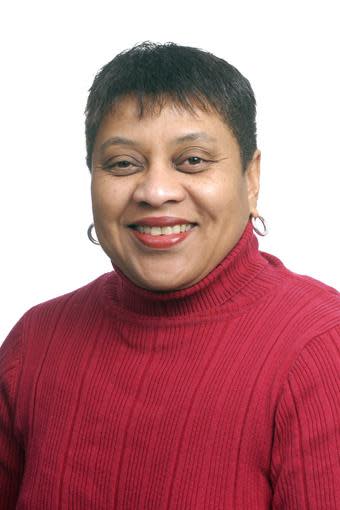Charita Goshay: Banned any good books, lately?
- Oops!Something went wrong.Please try again later.
Like crabgrass and baseball, every spring seems to bring with it an outbreak of hand-wringing over books.
Around the country, public and school libraries are finding themselves in the crossfire over what's suitable and who gets to define it.
We are in what columnist Parker Malloy calls "outrage spaghetti," that is, throw any and every cultural issue against the wall, and see what sticks.
This isn't new, of course. In 1983, Louise Fitzhugh's "Harriet the Spy" became the subject of fierce debate in Xenia because critics claimed its central character encouraged kids to lie to their parents.

Other children's books once viewed as subversive include "The Lorax," "Where the Wild Things Are," "Anne Frank: The Dairy of a Young Girl," and the "Harry Potter" series, which has been long been hit by conservatives who object to the book's wizardry theme, but now by progressives who take issue with author J.K. Rowling's views on transsexual women.
More: Charita Goshay: Book banning is an old, dangerous trick
'To Kill a Mockingbird' is a punching bag
"To Kill a Mockingbird" has long been a punching bag for adults who say they are concerned about the story's sexual content, racism and violence, though the story's protagonist is a child.
Because if kids don't read about it, they won't know about such things?
This spring's monster under the bed is "grooming," the implication being that anyone supportive of LGBTQ issues and ensuing books about the topic must be a supporter of pedophilia.
The argument, by the way, cynically and knowingly refuses to make a proper distinction.
People who have latched onto this latest crusade seem oddly blind to the fact that kids don't need the library to learn about racism, violence or the scourge of pedophilia. While their parents are snoring, their children are traversing the world through their phones and iPads.
They also have friends and classmates who have been victims of sexual abuse.
Parents and taxpayers have a right to express their views, even their objections to books about which they have concerns. But in doing so, they also should acknowledge the expertise of librarians, who are trained professionals, and resist accusations that there is some secret cabal afoot to recruit and convert children.
Was nothing learned from "Pizzagate?"
A small leap
The Washington Post recently reported that in Llano, Texas, community leaders have banned books and have restacked the public library's board with some people who don't even have a library card, and closed the board meetings to the taxpaying public.
Conservative columnist Charlie Sykes recently reported that book banning has moved from schools to public libraries, and that at least three states have dissolved their library governing boards. Sykes also noted that this year, PEN America, a free-speech organization founded in 1922, has tracked 1,586 instances of books being banned in 86 school districts in 26 states.
It isn't that far of a leap from banning books, to burning them.
Author Marcus Sedgwick said: "People burn books, and that they ban books, is in a way, a good sign. It's a good sign because it means books have power. When people burn books, it's because they're afraid of what's inside them ..."
When books, and the people who write them are cast as threats to the general welfare, the burning and banning books is seen as less of an anathema and atrocity, and more of a defense against those who seek to unravel the nation's moral fiber.
But here's the thing: Censorship never stays on its leash. Sooner or later, it turns and comes for what you espouse, too.
If banning a book is cast in a cloak of morality, it eventually will be countered that there are chapters in the Book of Genesis that have enough sex, lies and murder to give Netflix a run for its money.
Last week, the U.S. Centers for Disease Control and Prevention announced that gun violence has become the No. 1 cause of death for American children.
People who storm school board meetings to demand solutions to problems that don't exist, shrug at the fact that first graders must practice mass-shooting drills.
But no one ever died from reading "Are You There, God? It's Me, Margaret."
Charita M. Goshay is a Canton Repository staff writer and member of the editorial board. Reach her at 330-580-8313 or charita.goshay@cantonrep.com. On Twitter: @cgoshayREP
This article originally appeared on The Repository: Charita Goshay: Book banning is a dangerous precedent
